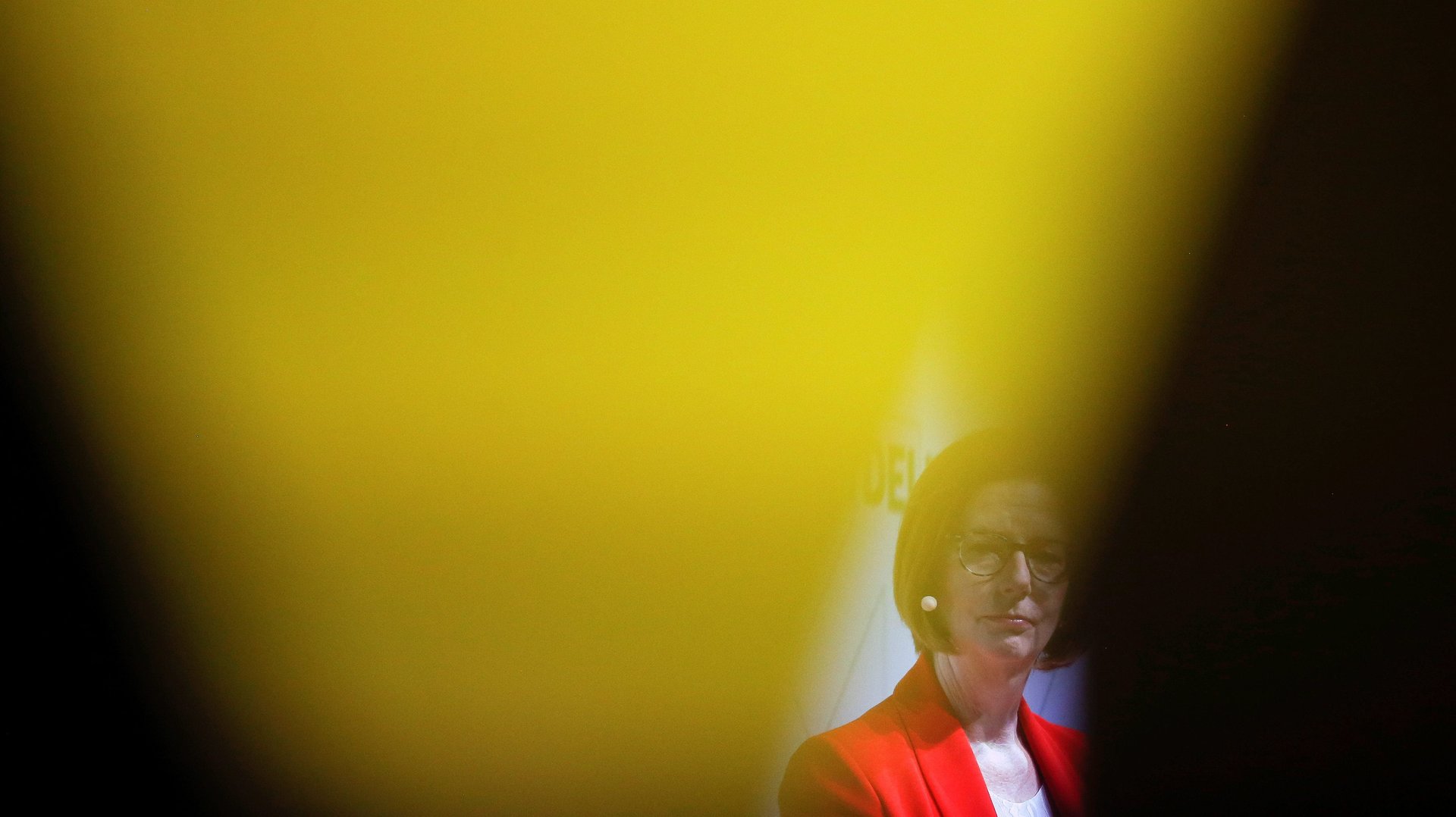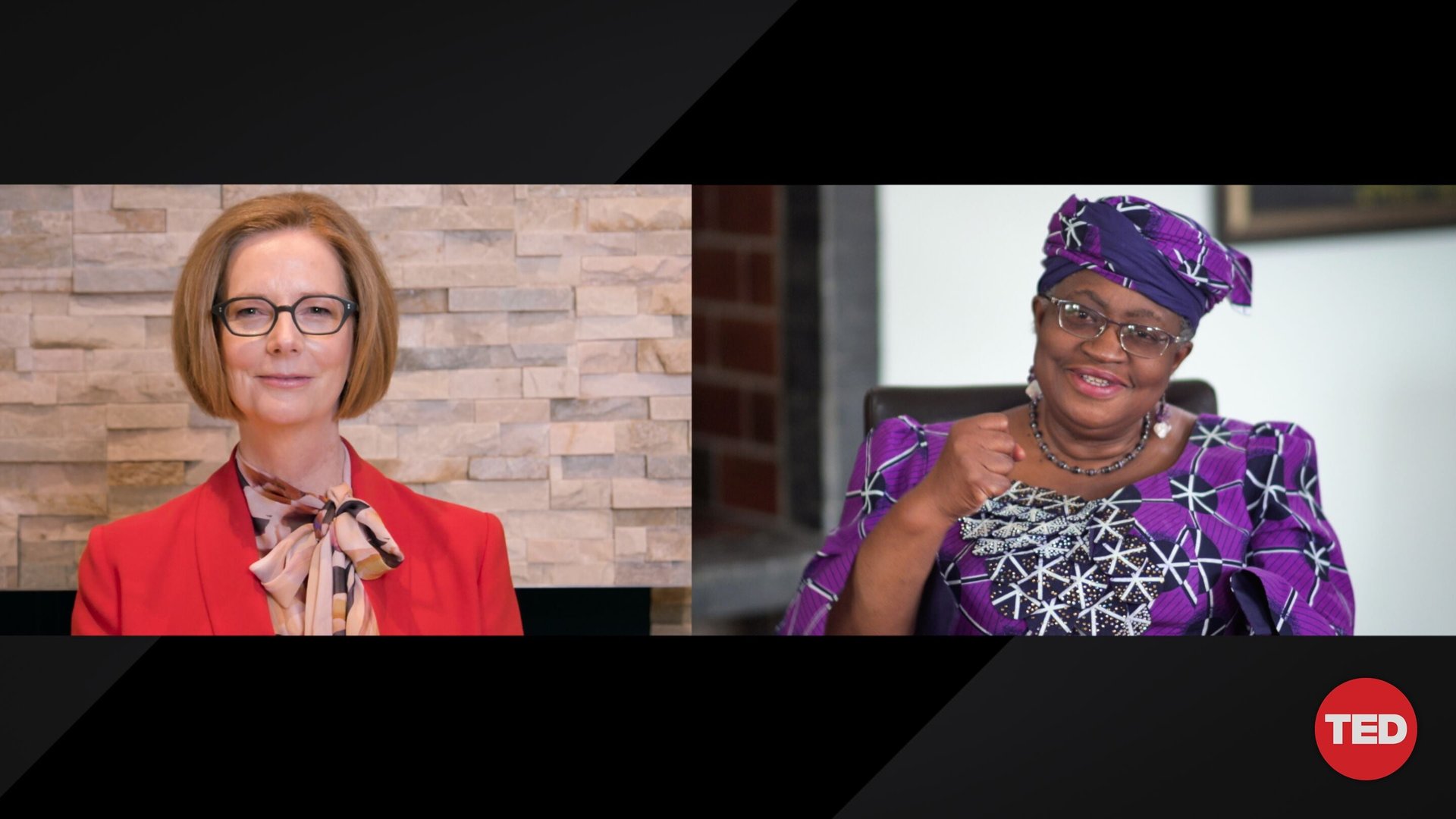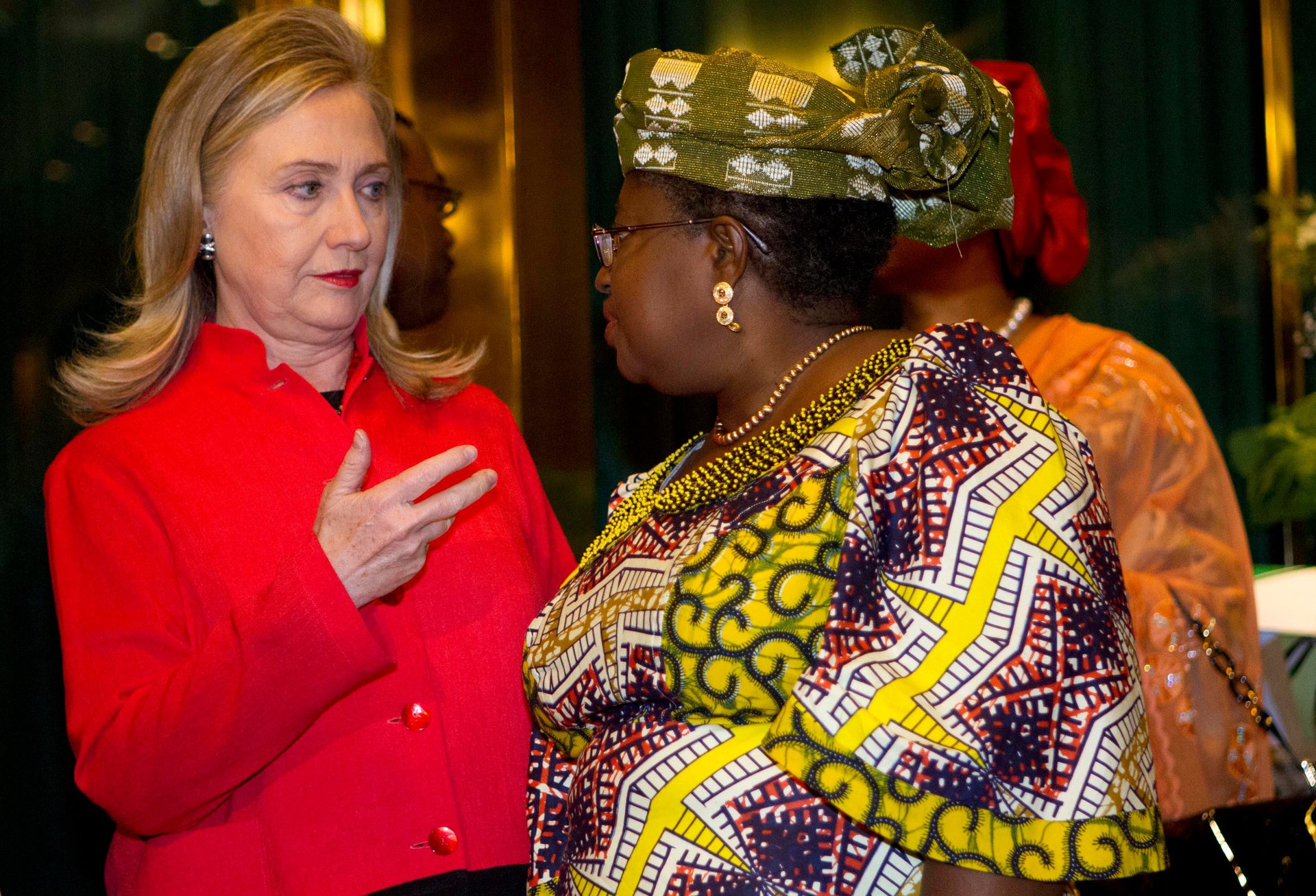Two world leaders dished about the sexism they faced—and how they fought back
In many ways, there’s never been a better time in history for women leaders. The Council of Foreign Relations reports a record number of female heads of state, and a recent Catalyst survey indicates that the number of women in senior management positions has tripled globally. In the US, the ascent of vice president-elect Kamala Harris is a historic milestone for women of color everywhere.


In many ways, there’s never been a better time in history for women leaders. The Council of Foreign Relations reports a record number of female heads of state, and a recent Catalyst survey indicates that the number of women in senior management positions has tripled globally. In the US, the ascent of vice president-elect Kamala Harris is a historic milestone for women of color everywhere.
But these wins for gender parity are tempered by the fact that sexism continues to impact even women in the highest offices. “We still have sexist stereotypes whirring in the back of our brains,” explained Julia Gillard, who served as Australia’s prime minister from 2010 to 2013—the first woman to hold that position. “I was even portrayed as out of touch because I don’t have children. I was even compared to a barren cow in the bush destined to be killed for hamburger mince.”

Speaking at TED’s women-focused conference on Nov. 12, Gillard and Ngozi Okonjo-Iweala, Nigeria’s former finance minster and foreign minister, spoke candidly about their travails and triumphs, drawing from a book they co-wrote titled Women and Leadership: Real Lives, Real Lessons.
Above all, comments about personal appearance hound women leaders. Former US senator and secretary of state Hillary Clinton, for instance, estimates that she lost the equivalent of 24 days getting her hair and makeup done during her run in the 2016 US presidential race.
To deflect discussions about her style choices, Okonjo-Iweala, who is vying to be the next director general of the World Trade Organization, said that she’s committed to wearing the same style of clothing all the time. “I’ve adopted a uniform. It’s colorful, it’s African, it’s me. I’ve developed my own style that I wear every day and I don’t vary from it.” explained Okonjo-Iweala. “It’s helped me to get people to listen to my words and not look at my clothes.”

Gillard also spoke about being mindful of facial expressions and how a “resting bitch face” is read differently on a woman. “Global research shows that if a man comes across as strong, ambitious, even self-seeking, that’s fine. But if the woman does it, the reactions against her can be as visceral as revulsion or contempt,” she said.
Women leaders are also expected to perform a complex balancing act in order to avoid losing the public’s respect and trust, Okonjo-Iweala noted. “To be viewed as acceptable as a leader, women have to stay balanced on a tightrope between strength and empathy. If they come across as too tough, they’re viewed as hard and unlikable, but if they come across as too soft, they seem to not have the backbone to lead.”
Speaking frankly about sexism can help prepare aspiring women leaders for what’s ahead, but it shouldn’t deter them from seeking office, Gillard said. She advised women to call on their trusted supporters to help them prepare for criticism and come up with potential responses. “How are you going to deal with the gendered moments? With being judged on your appearance? With being assumed to be a bit of a bitch? Or when your family choices are questioned? Forewarned is forearmed.”